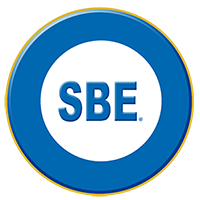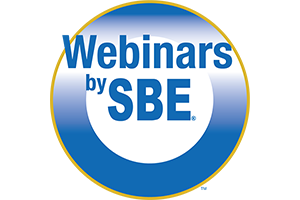The Basic RF for IT series is designed for newer engineers who come from an IT or non-technical background and need some training on the theory and components involved in generating radio frequency signals, as well as the principals involved with respect to maintaining and optimizing operation. While not intended to be an in-depth electronics education, this course provides familiarization with the theory and math involved in RF generation, as well as practical applications of that theory. Each course will consist of four modules and can be viewed individually or taken sequentially. Modules will be discussion-based, with theory and references provided throughout.
Originally streamed June 29, 2023
Basic RF for IT Series Module 1 starts with an overview and an introduction to Ohm’s Law and the basic math that is used for RF calculations (finding cutoff frequency of a filter, for example, or determining the capacitance required to tune a network). Further modules will help provide the tools needed to safely and efficiently work on RF amplifiers, including instruction relating to both tube and solid-state transmission equipment. Again, this is not intended to replace comprehensive electronics theory training, however, the goal is to provide the fundamentals needed to effectively troubleshoot and maintain transmitters, STLs and other RF devices.
Instructors: Jeff Welton, Gary Cavell
Originally streamed July 20, 2023
Basic RF for IT Series Module 2 discusses AC circuits and concepts and RF circuits and concepts. RF is just higher frequency alternating current (AC), but the approach is a bit different. Capacitance and inductance matter more – and we’ll use this session to explore the physics that determine how much and why. Several things will be covered, including safety aspects of working with higher voltages and currents and a brief introduction to the math used to determine cutoff and resonant frequencies (and what those terms mean).
Instructors: Jeff Welton, Gary Cavell
Originally streamed August 31, 2023
Basic RF for IT Series Module 3 provides an introduction to tuned circuits (filters, combiners, antennas). In this session, we expand on the formulas introduced in session two, going more in depth with the theory behind design of tuned circuits for RF purposes. There is a discussion on various aspects, covering AM, FM and TV, as all have similarities, but wavelength goes a long way toward determining approach – and that will be covered as well.
Instructors: Jeff Welton, Gary Cavell
Originally streamed September 21, 2023
Basic RF for IT Series Module 4 discusses amplifiers and basic troubleshooting. None of the previous sessions matter if we can’t make a little signal into a big signal, and fix it when it doesn’t work as planned. This session looks at various amplifier designs and discuss troubleshooting techniques for each – how you approach a Doherty tube amp will be different than how you troubleshoot a current day solid-state amplifier. There will be some discussion on amplifier classes, pros and cons of each and how to use measurements to determine if things are operating as they should.
Instructors: Jeff Welton, Gary Cavell, Geoff Mendenhall
Instructors
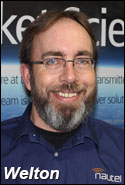 Jeff Welton, CPBE, Nautel
Jeff Welton, CPBE, Nautel
Jeff Welton took his training in the Radio College of Canada (RCC) Electronics Engineering Technologist program and a recipient of the NAB Engineering Award for Radio. Jeff has performed component-level repair, field installation and service, technical support and quality assurance roles with various companies and has been with Nautel for more than 30 years, the first 17 of which were spent in field service and technical support positions, as well as assisting engineering with design review of new products and improvement of existing systems. Since moving to sales in 2007, Jeff keeps finding ways to get his hands dirty and can frequently be found assisting in the install of a transmitter he’s sold, as well as performing site inspections and the occasional repair.
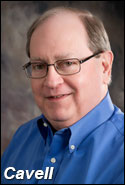 Gary Cavell, Cavell Mertz & Associates, Inc.
Gary Cavell, Cavell Mertz & Associates, Inc.
A 40-plus year broadcast veteran, Gary Cavell is a recipient of the NAB Engineering Achievement Award for Radio, and the IEEE Broadcast Technology Society’s Award for Outstanding Broadcast Engineering. He served as editor-in-chief for the 11th edition of the NAB Engineering Handbook and has published many articles on practical aspects of broadcasting over the years.
Gary has been a lecturer and faculty member of the NAB Educational Foundation’s Broadcast Leadership Training program, has been a lecturer for the NAB Broadcast Technology and Engineering Internship Program, the Voice of America’s/IBB US Technical Training Institute, and was a developer and co-presenter of RF Bootcamp sessions during several NAB conventions.
Gary is a member of several professional organizations including the SBE and is Life Member of both SMPTE and IEEE. He is a past president of the IEEE Broadcast Technology Society. Gary is a Certified Master Thermographer, holds a Drone Aircraft Pilot Certificate, an amateur radio Extra Class operator’s license, an FCC General Radiotelephone Operator’s License, and is an instrument-rated private pilot.
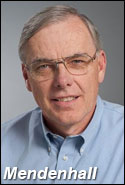 Geoff Mendenhall, Mendenhall Engineering
Geoff Mendenhall, Mendenhall Engineering
Geoff Mendenhall has spent most of his 50-year career in the broadcast industry. He has always had a passion for radio broadcasting where his many contributions have made him one of the industry’s best-known experts on FM transmission.
Authoring more than 50 technical papers, including the chapter on FM/HD Radio transmitters in the NAB Engineering Handbook, Geoff was recognized with the 2010 NAB Best Paper Award and the 2011 Matti S. Siukola memorial award for best IEEE Broadcast Symposium technical paper.
Geoff received the 1999 National Association of Broadcasters Radio Engineering Achievement Award recognizing his many innovations and contributions to the broadcast industry and he was named an Engineering Fellow by Harris Corporation in 2008. Geoff retired from Harris Broadcast Communications in 2013 to form Mendenhall Engineering, LLC, an RF engineering consulting firm.
SBE Recertification Credit
The completion of a webinar from Webinars by SBE qualifies for 1 credit, identified under Category I of the Recertification Schedule for SBE Certifications.
Registration and Pricing
SBE Members: $62
MemberPlus Members: Free
Non-Members: $92
Questions?
If you have questions regarding this course, contact Cathy Orosz via email or by phone at 317-846-9000.
More information about registering using the SBE MemberPlus benefit
All SBE webinars are included at no additional cost for members who upgrade or join using the SBE MemberPlus membership option. You get access to all archived SBE webinars and any new live webinars SBE presents, all for no extra cost.
Access to the SBE webinars through the SBE MemberPlus program is limited to the MemberPlus-purchaser only. You are not permitted to distribute, sell, copy, share, project or otherwise make the webinars available to any other individual or group without express written permission by the SBE.
